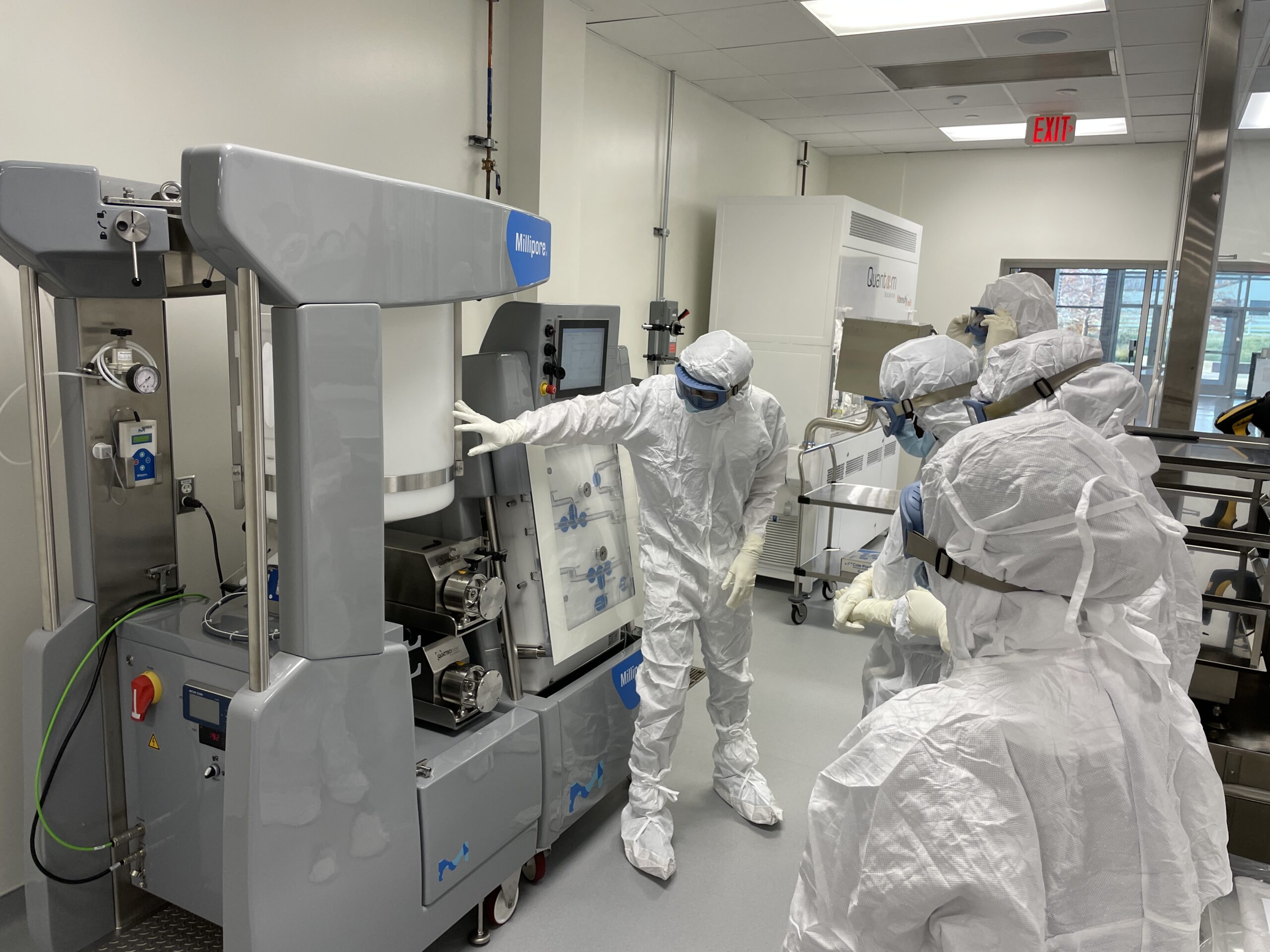Participating Employers:
Click on the employer name to view position openings.
What is a registered apprenticeship?
A registered apprenticeship is an employer-led training model in which unqualified individuals are equipped with the skills to perform the duties of the occupation while earning competitive wages. This is a paid training model where apprentices earn progressively larger wages as their skill level increases. Apprentices learn on-the-job under the supervision of a mentor or “journeyworker”.
Biomanufacturing Technician Role
Biomanufacturing technicians are an important in the process of creating safe, effective medicines. A biomanufacturing technician performs manipulations of equipment, flowpaths, liquids, and other process components in accordance with manufacturing documentation. Work is often done within a cleanroom, a controlled environment with strict regulations for surface and air cleanliness, air flow, and gowning of personnel. Technicians work with a variety of equipment including biosafety cabinets (BSCs), incubators, peristaltic pumps, filtration units, bioreactors, chromatography systems, centrifuges, and more!
For Job Seekers:
- “Earn while you Learn” – Apprentices are paid from Day 1
- Learn skills in biomanufacturing, no experience necessary
- Must have a high school diploma or GED
- Earn a national portable credential from the U.S. Department of Labor (DOL)
- Complete apprenticeship in as little as 1 year, debt free!
For Employers:
- Recruit and develop a highly-skilled workforce
- Create flexible training options which ensure workers develop the right skills
- Receive tax credits
- Retain talent by creating a culture of loyalty
- Have fully capable employees in as little as 1 year
- Screen apprentices during probationary period!
Frequently Asked Questions (FAQs)

